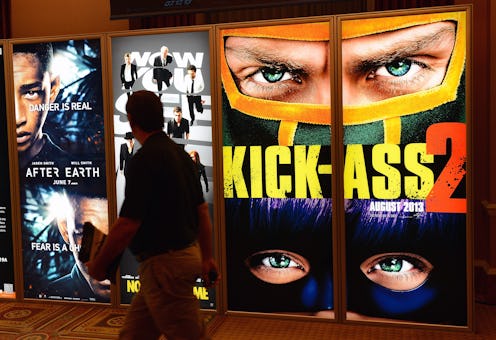Entertainment
Do We View Entertainment Differently Post-Sandy Hook?
Jim Carrey pulling his support from his newest film, Kick-Ass 2, on Sunday over Twitter may not have been his smartest move. But his sudden "change of heart" does beg the question: Six months after the shootings at Sandy Hook Elementary in Newtown, Conn., has violence in entertainment changed?
Because political rhetoric certainly hasn't. The supposedly across-the-board bipartisan movement for universal background checks for all gun purchases failed in the Senate in April, and the only person who seems to be taking up the cause is Vice President Joe Biden. At this point, the gun control debate seems to be at a standstill.
Carrey has long advocated for his position on gun control — his "Cold Dead Hands" skit from Funny or Die spoofs avid gun owner Charlton Heston. But it seems odd that he would renew his focus to violence in entertainment six months after Newtown, when all the knee-jerk reactions to the tragedy have died down. Sure, the Jack Reacher premiere was postponed, Quentin Tarantino got asked about the violence in his films for about the millionth time, and Ryan Murphy put some thought into toning down the violence in American Horror Story. But it's six months later and Drive director Nicolas Winding Refn is giving defensive and uh, weirdly sexual answers to questions about the excessive violence in his new movie, Only God Forgives. It's the same cycle that occurs after every tragic instance of violence in America — inevitably, someone makes violence in entertainment an issue, and inevitably, we all forget about it a few months later.
The thing is, both of these things are good. When violence happens in entertainment, we don't just see the violence, we also see its effects and how people cope with it, and it helps us cope with the violence in our own lives. And real, gritty violence is actually even more helpful — it helps us see that shootings aren't just about cool guys with shiny guns. (Just look at the Red Wedding in Game of Thrones.) They don't spare audiences from the guts, the blood, the ragged edges of a wound. Taking a life is a disgusting, messy, horrifying business. And it's clear that seeing violence on the screen has a pretty small effect on audiences. The very fact the most people could forget about the "violence in entertainment" debate so quickly says just how much of an influence entertainment has on our daily lives. Research indicates that when it comes to violence, other factors take precedence: a 2008 study at Texas A&M University found that factors like exposure to physical abuse were more likely to indicate a violent disposition, but playing video games was not.
The people who bring the debate back up also have a point, but it's not that we should take violence out of movies, videogames, and television shows. Creative people need to be reminded that they're making a statement to audiences, and they need to ask themselves every so often just what it is they're trying to say. If there's violence in a work of art just for people to gape and gasp, well then, what's the point? And once this debate is brought up, ultimately someone will bounce the argument back to gun control and politicians will be made to answer for their decisions. The violence in entertainment debate has a valuable place in society, but that place is not to be used as a scapegoat for the violence in our society. Life will never be able to imitate art as much as art imitates life, so when violent movies come out, the better question to ask is: Just what are they imitating?
